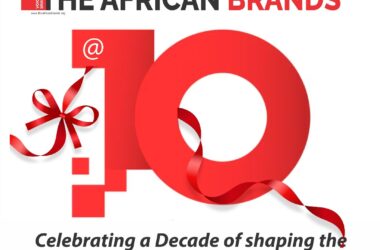The general business climate is gradually returning from a challenging period resulting from the Covid problem. Like it was in the global economy so was it in the country’s economy cutting across every industry including the Integrated Marketing Communications space. The effect from the pandemic was massive- leaving behind crippled businesses all over the world.
Even though businesses have been negatively affected , there are some gains from the covid experience among which is a new way of approaching business, as pointed out by Tunji Adeyinka.
Mr. Tunji Adeyinka is the Group Managing Director (GMD) of Republicom, a marketing, sales and technology company and President of Experiential Marketing Association of Nigeria (EXMAN), a sectoral body of licensed operators of experiential marketing practice in the country.
A consummate marketer and deep thinker, Adeyinka’s wealth of experience covers Integrated Marketing, Event management, Sponsorship, Direct Marketing and Marketing Communications.
In this interview with MediaConsortium, an amalgam of three online platforms, Amechi Obiakpu of Espinews (www.espinews.com.ng), Adetunji Faleye of Brand Impact (www.brandimpact.com.ng) and Godwin Anyebe of Consumersassembly (www.consumersassembly.com) at EXMAN office recently, Adeyinka talked on issues surrounding the experiential marketing practice in the country, some of the roles EXMAN is playing to give direction to member agency in particular and the Nigerian society in general. Excerpt:
Covid 19 disrupted business activities around 2019 and 2021, how were your members able to navigate through the storm?
Like you rightly said those years were challenging for the economy and challenging for experiential marketing practitioners. Historically, a lot of experiential activations were physical, in person and face to face. When people were not allowed to gather in public places and interact physically the tempo of marketing activities went down and marketing budgets really dropped.
Sporting, entertainment and other social experiences were cancelled. It was tough for our members but they were also good years for us because we were able to redefine the entire experiential marketing practice. Not really redefine but pivot to consumer engagement tactics which had been less popular before them.
We began to speak seriously about contactless engagements, about digital experiential services and about services that could engage the consumers without having a physical presence . It was a tale of two cities- challenging but, also a year of innovation for the industry.
Because you mentioned the word digital, how much of a shift from the conventional experiential marketing practice, would you say digitization has brought into the practice?
It is a bit tough to answer that question in that manner because, in a lot of cases the penetration of digital consumer interaction was low. Some consumers, especially the more conservative ones and mostly the digital immigrants would never pay for any service online or even order online. Some had never used any online platform before then. But then the reality of those times forced these consumers to engage on digital platforms.
The challenges demanded that consumers move from physical interactions to more virtual interactions on different digital platforms. As marketing people , we needed to understand the new state of play and meet the consumer on the pathway to purchase.
How do we advise the consumer on the suitability of a product while he is thinking of what to buy and how do we ensure he buys our client’s product without meeting them physically? Strictly speaking, every marketing business is a digital business not in the old classification of functional services but because digital services are now part of almost every marketing campaign today
The issue of debt between agency and client has generated a lot of problem which is one of the position addressed by the AISOP, what is your position on that?
The position of EXMAN is very clear. We are 100% behind AISOP. And, we are 100% behind a set of guidelines that allow us to have a better marketing services industry, a better framework to practice the profession. AISOP helps to define and clarify how the relationships take place between the agency and the clients. Those kinds of guidelines are in place to ensure that the agencies deliver, that clients are happy with the quality of service and that everyone in the entire ecosystem exchanges fair value. That is why we support AISOP
What do you think practitioners should do to get everybody on board because of the controversy around it?
I think that one of the challenges that we seem to have is that people don’t understand the capacity of every system to heal itself especially with the right regulatory oversight. If the system has been running in a way that has been lopsided and suboptimal regulation can help to balance the system.
I believe that the system in the advertising industry is already righting itself because in our interaction with different clients, we are beginning to see that clients are embracing some of the ideals or the guidelines that we have in AISOP.
Indeed, there are some clients that even without AISOP are already implementing the guidelines that you have in AISOP. If you speak about pitches for example, there is a way pitches are called all over the world or should be called . If you are looking at credential pitches where an agency is just telling you their strength, that will not attract any fee, but when you get to the point where you are talking about strategy, creative and execution pitch, the client has to pay in exchange for their intellectual property and engaging such in-depth work.
Second is payment terms. If you give me a job today and do not pay me for 120 days, and I spend my money to execute the job I am financing the business because the bank will give me a facility, I will pay for that facility, that erodes my profitability. That means I deliver the job, I also arrange for finance cost. Again, it is also fair to say if I do a job I should get paid.
The other things are just as clear as this. I am a client I have the right to change agencies, but there should be a protocol to do that. When I am moving from one agency to another I must ensure that I don’t owe the agency I am leaving . The last agency must be part of that hand over process to a new agency because, if that is not done the new agency is going to suffer the same fate like the old agency.
You see, the bigger thing that we need to speak about is about building sustainable ecosystems. Nature gives us examples when we look at symbiotic relationships. I offer this, you offer this. In a parasitic relationship, I am giving this, you are not getting anything from this. In this entire marketing communications ecosystem, everybody puts some value on the table. It’s to the advantage of the advertisers that agencies are well taken care of because you want them to offer better ideas and services.
The most successful clients are those who use their agency’s key resources. When you do that, you have to ensure that your agency has enough resources, attract the right talent and pay the right talent and invest in learning and development for that talent. If it is a parasitic relationship, I don’t really care about that talent and if I don’t care about talent development it means that I don’t care about that kind of service that they offer. If I care about the service they offer me, ultimately it will show on my own deliverables better than in a parasitic relationship. Honestly, that is a larger way that we should look at the entire discussion. And advertisers are not necessarily against this position.
As the President of EXMAN, how does the association control the quality of execution of work of member agencies?
At EXMAN, we have different organs and committees. We have a code of conduct that covers different areas such as ethics, professional practice, client relationships, issues that has to do with children, women and all of this. And we have a committee which is responsible to ensure that every member of EXMAN operates according to this code.
APCON has just released certain guidelines, a revision from the old advertising industry practice code. If you are handling consumer data, how do you handle it? How do you ensure that you are not in breach when you handle consumer data and so on and so forth?. If we get any report from client, or from 3rd parties of any of our members going against the code of conduct, we have an internal system to engage the members and ensure that order is restored, and we also have punitive measures in place that is if a member is not doing anything right professionally.
As a sectoral group every member of EXMAN, like every other sectoral groups have a practice license issued by APCON. If there is any infraction after we have done everything we need to do and it is not corrected, APCON has the right to withdraw that license. Any client that is working with EXMAN agencies, like we say has double or triple assurances.
You have the assurance of the EXMAN code of conduct. You have the assurance of the APCON code of advertising practice and thirdly which is the most important one, we have different training interventions we take our members through to ensure qualitative delivery which will put them in a better state than non EXMAN members.
You talked about righting the wrong between clients and member agency and you also talked about ensuring qualitative execution of works, how will this work, is it that all agencies work will be vetted before execution or what?
There is no platform to vet the activities of our members before activation takes place for their client. What we then depend on is, first there is a guide in terms of what we consider to be very professional and what we consider to be unprofessional especially if you are a member, but if you are not a member you will not have such privileges.
In EXMAN, before you become a member, there is a certain hurdle you would have crossed, those hurdles include, financial strength, evaluation of your structure, etc. You don’t need to have a billion naira, that is not what we are saying, we are saying can you credibly do a certain amount of job for your clients noting your financial strength?
Secondly, do you have the departments that can support the practice? Thirdly, have you gone through the ethical test? Do you agree that when you are selling alcohol or cigarette that must not be the presence of children? And all that. All of those things are like the pre-check that we do. There had been one or two times that we get certain complaints not even from clients but from third party.
There was a time we got a complaint about an agency of a client who treated their brand ambassadors badly and the person then sent us a message thinking that the company was an EXMAN member but, the agency was not, if it was we would have immediately requested for explanation, and if the explanation was not satisfactory we will take it to the next level. Those are the benefits of being a member of EXMAN.
The other one is that, if you are not licensed to operate as an experiential agency, you are operating illegally and the route is very clear, to be a licensed operator, you have to be a member of EXMAN or AAAN, MIPAN or OAAN and that is the route you take to APCON.
What kind of training programme does EXMAN have to prepare the younger generation who have plans to venture into the sector?
In the last few weeks, we have really been aggressive on this. One of that is to engage young people being students in the universities or higher institutions advising them to look at experiential marketing as one career option they can walk into. We have different internships with our members.
In fact, we have internship program by some of our members aimed at attracting young people from the secondary schools, interns from universities and polytechnics who are exposed to the industry for the first time. We have something called The Brand Ambassadors Certified programme, a certification programme for brand ambassadors.
Those are the route, one is to come in as a student, the other is as a brand ambassador, while the third route is to come in as a fresh employee. Again, we have a programme either within EXMAN or in partnership with different platforms to train the freshers.
How do you deal with the issue of quacks in the industry?
How do you define quacks? The first thing is that in every profession you must have regulation and some kind of certification. The regulation here says you must have a licence to practice. If you have a licence you must be a member of one of the sectoral groups. If as a client you patronize an unlicensed company, you are doing that at your own risk. The key thing is that if you don’t have a licence you are operating illegally.
But again, we have to be circumspect that, if am starting my business today, what do I need to do before I register. Because you cannot register at day one but if you consult with us, we can put a plan in place that allows you to start your business and walk through the registration process. In every profession it is when you are licensed to operate that you are protected and you have the body of knowledge that helps you to practice.
What are your expectations post covid?
From the beginning I said that we have learnt some lessons from covid, because we now have agencies that are better tooled, because we are dealing with the world where we have a disease that is living and will live with us for a long time. We are very conscious about some of the protocols and some of the learning of 2020 have come to stay.
At the onset of covid we were having virtual events but now we have hybrid events where we mix virtual and physical This is telling you that whether there is covid or not physical gathering is coming back and there is now a mix. We are having different ways of contactless activities and are having a lot of data to aid every marketing decision we take or plan to take. Those are the things that have added to make this profession more robust and I think if you look at it, we are in a better state than we were pre-covid.
The reality for me is that running an experiential marketing agency is not cheap considering the amount of resources involve to handle activations where you have fewer clients. How challenging is that?
The answer lies within the Industry Analysis construct and the Porter’s Five Forces helps to provide a guide. In a market where you have few buyers and a lot of suppliers chasing the few buyers, prices will go down because more providers are chasing fewer businesses. That is the tendency towards commoditization.
The agency sector has to start thinking seriously about consolidation. This is not new, it happened in banking. As an experiential marketing business, you must be doing a certain level of income to be profitable. So we have to start thinking seriously about strategic partnerships, consolication and collaboration
Secondly you have to bring together non-strategic assets in a pool. For instance, when the telecom started their business in the country, every telco was busy building masts, but now they are not talking about building masts, instead, they have turned that asset which is the site to another company, the sites have been taken off the telcoms balance sheet and it is owned by a third party. So, you have different tower companies that own those assets.
One of the committees we have in EXMAN is called the Transformation Committee and what they are looking at are issues around long term strategies for our industry looking at innovation, use of technology, industry-wide measurement and other value-driven solutions









